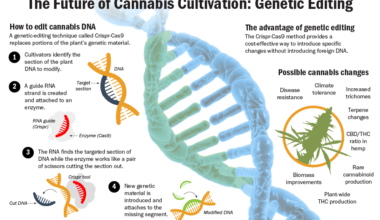
Older adults who consume cannabis perform no differently than abstainers on neuropsychological performance tests, according to data published in the Journal of the International Neuropsychological Society.
A team of investigators affiliated with the University of Michigan assessed cognitive performance in 540 older adults (ages 55+). Approximately 11 percent of study participants reported modest cannabis use within the prior six months, while others reported no cannabis use.
Subjects’ performance was similar across five cognitive domains (speed/executive, visual, attention, language, and memory) regardless of whether they had a history of cannabis use.
“Overall, our results indicate that older adults who reported using cannabis in the prior six months did not differ on neuropsychological testing results when compared to older adults who reported no recent use of cannabis,” the study’s authors concluded. “This pattern held true across both traditional analytical approaches (multivariate and univariate regressions) and propensity score matching, which was employed to balance groups and enhance causal inference. … Our results are generally consistent with findings from systematic reviews concluding that low frequency cannabis use among older adults is generally well tolerated and is not clearly associated with adverse cognitive outcomes.”
Commenting on the study’s findings, NORML Deputy Director Paul Armentano said, “These results belie long-standing ‘stoner-stupid’ stereotypes. As more older adults turn to cannabis, these findings are timely and relevant, and they should inform patients’ decisions as well as the perspectives of their doctors and caregivers.”
Survey data indicates that as many as one in five older adults report consuming cannabis products, with most saying that it improves their overall quality of life.
The full text of the study, “Cannabis use and cognition in older adults: Preliminary performance-based neuropsychological test results and directions for future research,” appears in the Journal of the International Neuropsychological Society. Additional information is available from NORML’s factsheet, ‘Marijuana Exposure and Cognitive Performance.’
Related
Medical Disclaimer:
The information provided in these blog posts is intended for general informational and educational purposes only. It is not a substitute for professional medical advice, diagnosis, or treatment. Always seek the advice of your physician or other qualified healthcare provider with any questions you may have regarding a medical condition. The use of any information provided in these blog posts is solely at your own risk. The authors and the website do not recommend or endorse any specific products, treatments, or procedures mentioned. Reliance on any information in these blog posts is solely at your own discretion.






